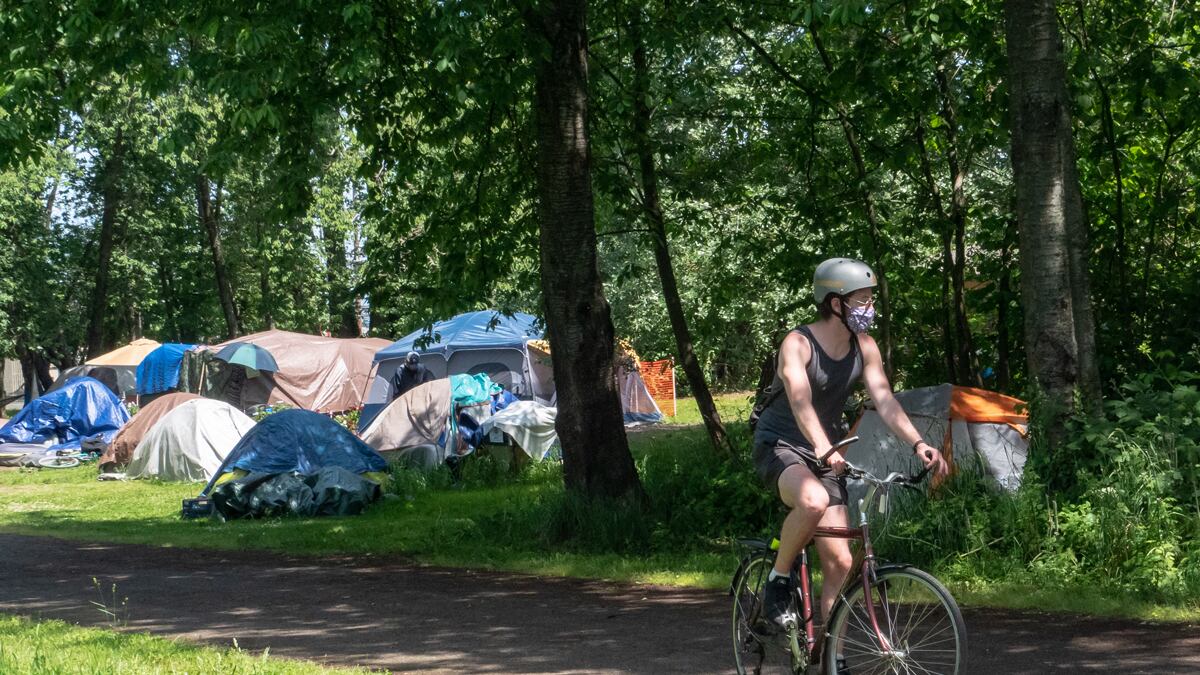In the Aug. 11 special election to fill the seat vacated by the January death of Portland Commissioner Nick Fish, only one candidate supports using the Wapato Jail as a homeless shelter. It's not the person you'd expect.
The two contenders, former Multnomah County Commissioner Loretta Smith and onetime All Hands Raised executive director Dan Ryan disagree whether the never-used Wapato Jail (now dubbed Bybee Lakes Hope Center) has a role to play in sheltering homeless Portlanders during the COVID-19 pandemic. Smith, a longtime advocate for opening Wapato, suggests looking elsewhere during the pandemic.
Here's what we asked this week:
As part of its ongoing response to homelessness and the COVID-19 pandemic, the Joint Office of Homeless Services plans to make extensive investments in shelters in the coming year and probably beyond.
Do you favor opening the Wapato Jail as a shelter? If not, why not? If you do, should the public chip in or should the funding remain wholly private?

Dan Ryan: Yes. "This issue is deeply personal to me. My brother Tim died on Portland's streets because there was no care available to him.
"In the midst of a homelessness crisis, global pandemic, an economic nosedive, along with a long-overdue overhaul of our community safety system, we have to ensure that we are doing everything we can to aid our most vulnerable community members. To be successful, we have to pursue multiple strategies and options. The Bybee Lakes Hope Center—as the former Wapato site is now known—is a model of what is possible when advocates are paired with the funding they need to create the transitional services, care and real hope for those we are currently failing to serve.
"Multi-serviced care centers shouldn't just be available to the wealthy, like the famous Betty Ford Center. They should be available to all who need them, and when an opportunity for a community partnership like this arises, we should jump at the chance to make progress.
"This is the kind of project that would warrant public dollars as a part of the funding mix, but Bybee Lakes Hope Center has not yet asked for public funding. All they have signaled so far is that they would like an expedited zoning process, which seems more than reasonable."

Loretta Smith: No. "I have been a vocal proponent of Wapato being one of many other resources we use to transition people off our streets in the past. However, as a matter of public health, congregate shelter is not where we should be focusing our investments to get people off the streets during this crisis. In the same way that the private sector stepped up to make Wapato a possible option where homeless people can transition into more permanent housing, we've had numerous hotel owners who have stepped up to provide their facilities to us in order to get members of our houseless community off the streets during this pandemic. I believe centrally located hotels present the best available short-term option for both getting members of our houseless community off the street and addressing their acute health needs.
"In regard to more long-term options, I am interested in using our limited public resources to execute a 'housing first' strategy, where we move people off the streets directly into housing and then deal with their socioeconomic and health needs. The average cost of a shelter bed is over $2,000 per month, where the average cost for a one-bedroom apartment in Portland is approximately $1,400 per month. Voters gave us a powerful tool when they approved the supportive services funding ballot measure in May; we should maximize the use and efficiency of that resource by prioritizing a regional housing-first strategy."


